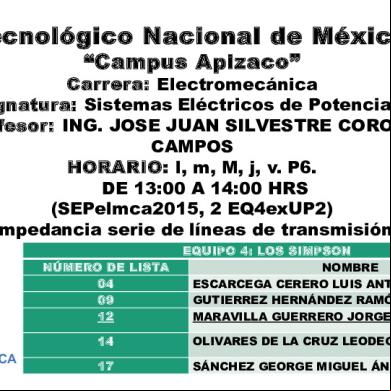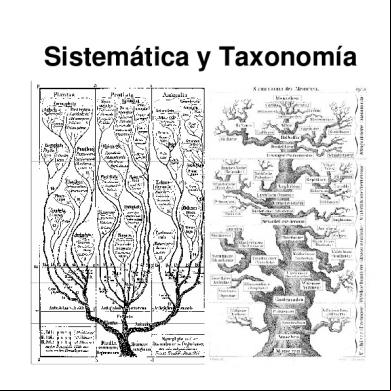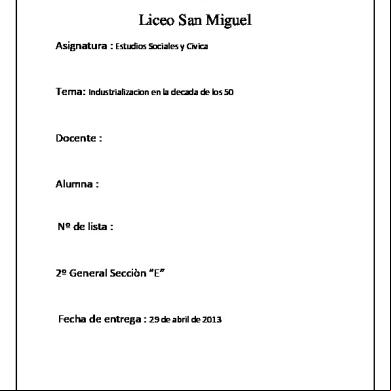Branches Of Genetics.docx 3u436z
This document was ed by and they confirmed that they have the permission to share it. If you are author or own the copyright of this book, please report to us by using this report form. Report 3i3n4
Overview 26281t
& View Branches Of Genetics.docx as PDF for free.
More details 6y5l6z
- Words: 820
- Pages: 3
What is Genetics? Genetics is the study of how traits such as hair color, eye color, and risk for disease are ed (“inherited”) from parents to their children. Genetics influence how these inherited traits can be different from person is the study of genes, genetic variation, and heredity in living organisms. It is generally considered a field of biology, but intersects frequently with many other life sciences and is strongly linked with the study of information systems to person. The scientific study of heredity. Genetics pertains to humans and all other organisms. So, for example, there is human genetics, mouse genetics, fruit fly genetics, etc. Your genetic information is called your genetic code or “genome.” Your genome is made up of a chemical called deoxyribonucleic acid (DNA) and is stored in almost every cell in your body.
Branches of Genetics 1)
2)
3)
4) 5) 6)
Classical genetics - consists of the technique and methodologies of genetics that predate the advent of molecular biology. A key discovery of classical genetics in eukaryotes was genetic linkage. The observation that some genes do not segregate independently at meiosis broke the laws of Mendelian inheritance, and provided science with a way to map characteristics to a location on the chromosomes. Quantitative genetics - is the study of continuously measured traits (such as height or weight) and their mechanisms. It can be an extension of simple Mendelian inheritance in that the combined effects of one or more genes and the environments in which they are expressed give rise to continuous distributions of phenotypic values. Biochemical genetics - the study of the fundamental relationships between genes, protein, and metabolism. This involves the study of the cause of many specific heritable diseases. Cytogenetics - is a branch of genetics that is concerned with the study of the structure and function of the cell, especially the chromosomes. Behavioral genetics - is the field of study that examines the role of genetics in animal (including human) behavior. Developmental genetics - is the study of the process by which organisms grow and develop.
7) 8) 9)
10)
11)
12)
13)
14)
15)
16)
Conservation genetics - is an interdisciplinary science that aims to apply genetic methods to the conservation and restoration of biodiversity. Ecological genetics - is the study of genetics in natural populations. Genetic engineering - is the direct manipulation of an organism's genome using biotechnology. New DNA may be inserted in the host genome by first isolating and copying the genetic material of interest using molecular cloning methods to generate a DNA sequence, or by synthesizing the DNA, and then inserting this construct into the host organism. Metagenics - is the practice of engineering organisms to create a specific enzyme, protein, or other biochemicals from simpler starting materials. The genetic engineering of E. coli with the specific task of producing human insulin from starting amino acids is an example. Genomics - is a discipline in genetics that applies recombinant DNA, DNA sequencing methods, and bioinformatics to sequence, assemble, and analyze the function and structure of genomes (the complete set of DNA within a single cell of an organism. Human genetics - is the study of inheritance as it occurs in human beings. Human genetics encomes a variety of overlapping fields including: classical genetics, cytogenetics, molecular genetics, biochemical genetics, genomics, population genetics, developmental genetics, clinical genetics and genetic counselling. Medical genetics - is the specialty of medicine that involves the diagnosis and management of hereditary disorders. Medical genetics differs from Human genetics in that human genetics is a field of scientific research that may or may not apply to medicine, but medical genetics refers to the application of genetics to medical care. Microbial genetics - This involves the study of the genotype of microbial species and also the expression system in the form of phenotypes.It also involves the study of genetic processes taking place in these micro organisms i.e., recombination etc Molecular genetics - is the field of biology and genetics that studies the structure and function of genes at a molecular level. Molecular genetics employs the methods of genetics and molecular biology to elucidate molecular function and interactions among genes. It is so-called to differentiate it from other sub fields of genetics such as ecological genetics and population genetics. Population genetics - is the study of allele frequency distribution and change under the influence of the four main evolutionary processes: natural selection, genetic drift, mutation and gene flow. It also takes into the factors of recombination, population subdivision and population structure. It attempts to explain such phenomena as adaptation and speciation. Psychiatric genetics - is a subfield of behavioral neurogenetics, studies the role of genetics in psychological conditions such as alcoholism, schizophrenia,
bipolar disorder, and autism. The basic principle behind psychiatric genetics is that genetic polymorphisms, as indicated by linkage to e.g. a single nucleotide polymorphism (SNP), are part of the etiology of psychiatric disorders.
Branches of Genetics 1)
2)
3)
4) 5) 6)
Classical genetics - consists of the technique and methodologies of genetics that predate the advent of molecular biology. A key discovery of classical genetics in eukaryotes was genetic linkage. The observation that some genes do not segregate independently at meiosis broke the laws of Mendelian inheritance, and provided science with a way to map characteristics to a location on the chromosomes. Quantitative genetics - is the study of continuously measured traits (such as height or weight) and their mechanisms. It can be an extension of simple Mendelian inheritance in that the combined effects of one or more genes and the environments in which they are expressed give rise to continuous distributions of phenotypic values. Biochemical genetics - the study of the fundamental relationships between genes, protein, and metabolism. This involves the study of the cause of many specific heritable diseases. Cytogenetics - is a branch of genetics that is concerned with the study of the structure and function of the cell, especially the chromosomes. Behavioral genetics - is the field of study that examines the role of genetics in animal (including human) behavior. Developmental genetics - is the study of the process by which organisms grow and develop.
7) 8) 9)
10)
11)
12)
13)
14)
15)
16)
Conservation genetics - is an interdisciplinary science that aims to apply genetic methods to the conservation and restoration of biodiversity. Ecological genetics - is the study of genetics in natural populations. Genetic engineering - is the direct manipulation of an organism's genome using biotechnology. New DNA may be inserted in the host genome by first isolating and copying the genetic material of interest using molecular cloning methods to generate a DNA sequence, or by synthesizing the DNA, and then inserting this construct into the host organism. Metagenics - is the practice of engineering organisms to create a specific enzyme, protein, or other biochemicals from simpler starting materials. The genetic engineering of E. coli with the specific task of producing human insulin from starting amino acids is an example. Genomics - is a discipline in genetics that applies recombinant DNA, DNA sequencing methods, and bioinformatics to sequence, assemble, and analyze the function and structure of genomes (the complete set of DNA within a single cell of an organism. Human genetics - is the study of inheritance as it occurs in human beings. Human genetics encomes a variety of overlapping fields including: classical genetics, cytogenetics, molecular genetics, biochemical genetics, genomics, population genetics, developmental genetics, clinical genetics and genetic counselling. Medical genetics - is the specialty of medicine that involves the diagnosis and management of hereditary disorders. Medical genetics differs from Human genetics in that human genetics is a field of scientific research that may or may not apply to medicine, but medical genetics refers to the application of genetics to medical care. Microbial genetics - This involves the study of the genotype of microbial species and also the expression system in the form of phenotypes.It also involves the study of genetic processes taking place in these micro organisms i.e., recombination etc Molecular genetics - is the field of biology and genetics that studies the structure and function of genes at a molecular level. Molecular genetics employs the methods of genetics and molecular biology to elucidate molecular function and interactions among genes. It is so-called to differentiate it from other sub fields of genetics such as ecological genetics and population genetics. Population genetics - is the study of allele frequency distribution and change under the influence of the four main evolutionary processes: natural selection, genetic drift, mutation and gene flow. It also takes into the factors of recombination, population subdivision and population structure. It attempts to explain such phenomena as adaptation and speciation. Psychiatric genetics - is a subfield of behavioral neurogenetics, studies the role of genetics in psychological conditions such as alcoholism, schizophrenia,
bipolar disorder, and autism. The basic principle behind psychiatric genetics is that genetic polymorphisms, as indicated by linkage to e.g. a single nucleotide polymorphism (SNP), are part of the etiology of psychiatric disorders.











